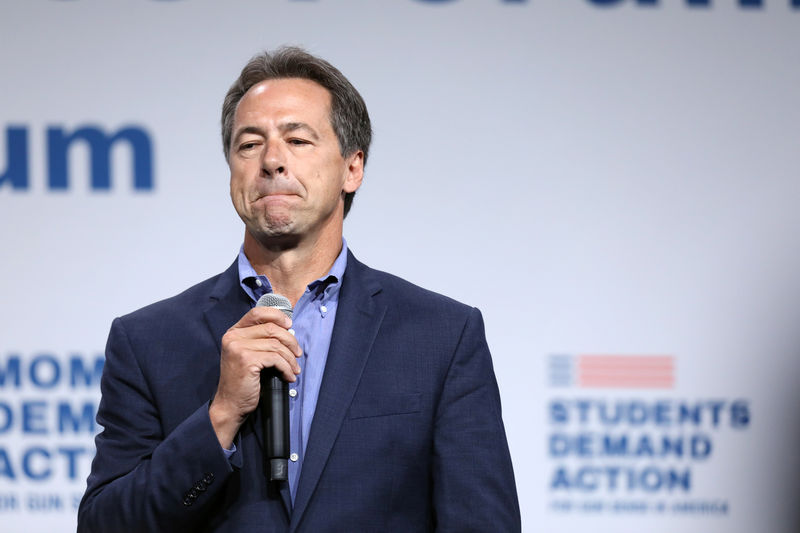By Sharon Bernstein and Doina Chiacu
(Reuters) - Montana Governor Steve Bullock said on Monday he was quitting his bid for the 2020 Democratic presidential nomination, exiting the crowded race for the party's nod to run against Republican Donald Trump.
The telegenic governor, whose success in a conservative-leaning state won praise from pundits but failed to catch fire in a field that once numbered 25 candidates, is the latest to drop out as the first nominating contests approach early next year.
"Today, I am suspending my campaign to become the Democratic Party’s nominee for president," Bullock, 53, said in a statement on Monday.
"While there were many obstacles we could not have anticipated when entering this race, it has become clear that in this moment, I won’t be able to break through to the top tier of this still-crowded field of candidates."
The race for the Democrats' nomination to run against Trump has been intensely competitive, with all but the top four candidates struggling to raise money and break through to a party desperate to unseat the populist president.
Trump has alienated progressives and many moderates with immigration crackdowns, impulsive foreign policy decisions and a cozy relationship with authoritarian leaders, including Russia's Vladimir Putin.
Former Vice President Joe Biden leads in national polls, followed by Vermont Senator Bernie Sanders, Massachusetts Senator Elizabeth Warren and South Bend, Indiana, Mayor Pete Buttigieg, the Real Clear Politics Average of polls shows.
The remaining candidates have struggled to raise money and win recognition and support.
On Sunday, former U.S. Representative Joe Sestak of Pennsylvania dropped out of the race.
He joined more than six contenders who ceased campaigning this year: U.S. Rep. Beto O'Rourke of Texas, New York Senator Kirsten Gillibrand, New York Mayor Bill de Blasio, U.S. Rep. Eric Swalwell of California, Washington Governor Jay Inslee and former Colorado Governor John Hickenlooper.
Bullock, 53, will return to Montana to finish out his second term as governor. He will not run for the U.S. Senate, despite encouragement from party leaders to do so and help Democrats wrest control of Congress' upper house from Republicans.
Bullock was re-elected in conservative Montana in 2016, making him the only Democratic presidential contender who had won a statewide election in a state Trump carried in 2016.
He presented himself as a potential unifier in a party torn between those preferring a pragmatist with appeal to moderates and independents, and those seeking a fresh face to energize the party's increasingly diverse and left-leaning voters.

Excluded from the party's first debate in June, Bullock made news by appearing on television and granting interviews criticizing Democrats' rules about who could participate.